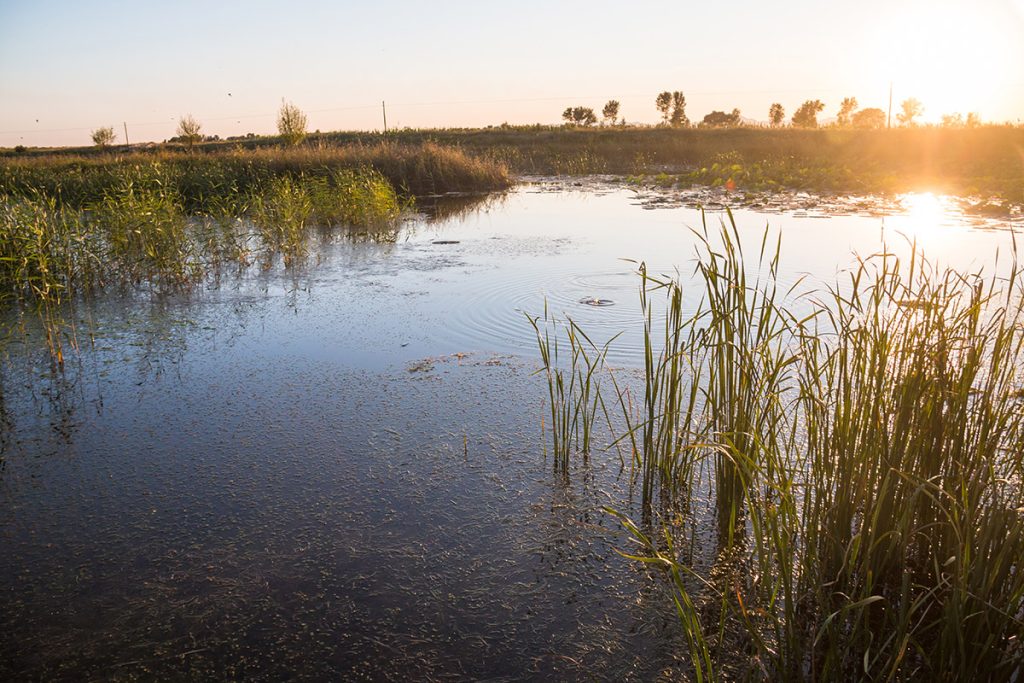Considering signing up for the Conservation Reserve Program (CRP)? You may notice there are other initiatives, like CREP or CCRP, that are also open for enrollment. These offshoots of the main CRP program typically focus on more specialized conservation goals.
CREP, or the Conservation Reserve Enhancement Program, is an offshoot of CRP that takes a more local approach. It is a collaboration between USDA and individual states, Tribal governments, private entities, and non-profits to implement specific conservation practices that benefit state conservation goals.
But how are CRP and CREP different? Here, we’ll compare both to show the main distinctions between these two important conservation programs.
Conservation Reserve Program (CRP)
Largest private-land conservation program in the US
CRP is the largest federal program for the conservation of privately owned land in the country. Developed to remove environmentally vulnerable farmland from production, it aims to encourage sustainable conservation practices.
Over the long term, the goals of CRP are to reduce soil erosion, enhance wildlife habitat, and improve water quality. By enrolling in CRP, landowners can protect their sensitive farmland for future generations.
Contracts granted based on EBI score
In order to enroll in CRP, interested landowners must submit a bid to receive a contract. Each bid is scored using the Environmental Benefits Index (EBI), a ranking system used to measure the conservation benefits of your project. The higher your EBI, the more beneficial to the environment, and the more likely your contract will be granted.
Additionally, bids can only be submitted during a certain enrollment period. The dates of each enrollment period vary each year, and if you miss the deadline, you must wait until the following year to submit your application.
Farmers paid yearly rental payments and incentives
For all CRP initiatives, participants are paid annual rental payments for the land enrolled in the program. Additional incentive payments can also be made depending on your contract and the type of practice you are enrolled in.
Conservation Reserve Enhancement Program (CREP)
Uses federal and non-federal funds
While CRP is a program funded primarily at the federal level, CREP is a collaboration between state and federal governments, as well as Tribal organizations and private entities, to boost conservation in specific regions. While it falls under the CRP umbrella, CREP is only applicable in certain states.
Addresses high-priority, local conservation goals
CREP is focused on achieving high-priority goals in specific regions using sustainable practices. For this reason, only certain conservation practices are eligible for CREP.
For general CRP projects, there is a long list of conservation practices (CPs) landowners can enroll in to fulfill their contractual obligations. These practices range from native grass establishment to wetland restoration to wildlife habitat enhancement. But for CREP, participants are limited to the specific CPs selected by their state. The approved CPs are those that align closest with the goals of each state’s program.
However, unlike CRP, applications for CREP can be submitted year-round. While the contracts are often the same term length of 10-15 years, signups are ongoing. Full requirements for your state’s CREP enrollment can be found through your local USDA Service Center or on the FSA website.
Illinois landowners can participate in CREP in 2022
States participating in CREP can vary by year due to a lack of budget or other interfering factors. This year, Illinois landowners are once again eligible to sign up for CREP and help their state boost their water quality as well as their native bird, fish, and insect populations.
Enrolling in CRP or CREP
If you’re considering enrolling in CRP or CREP now or in the future, contact us at FDCE. Since 2003, we’ve been providing full-service CRP solutions, including documentation and establishment, to private landowners around the country. With our expertise, we can guide you through the process to get your project started off successfully.
Our experienced staff can provide management services as well as assistance with special projects like bioenergy or pollinator initiatives. We also offer high-quality, CRP-approved seed mixes through our sister company, All Native Seed.
Ready to start the conversation with our CRP experts? Send us a message today!

